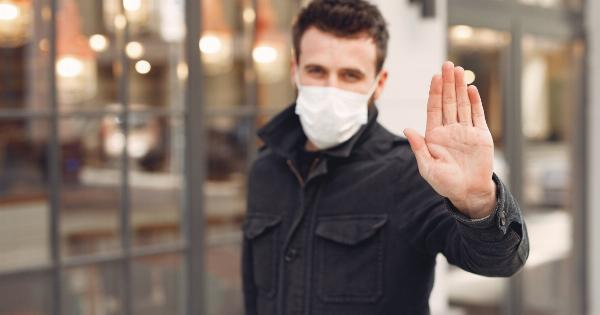Seasonal allergies affect millions of people around the world. They are caused by a variety of allergens such as pollen, mold, and dust.
For many people, these allergies can be a nuisance, but for others, they can be a serious health risk, triggering severe allergic reactions and asthma attacks. While it’s impossible to completely avoid allergens, there are many ways to manage seasonal allergies and reduce the risk of worsening symptoms. Here are some tips:.
1. Follow Pollen Counts
Pollen counts can fluctuate throughout the day and vary from day-to-day. It’s important to stay informed about the pollen count in your area so you can plan outdoor activities accordingly.
Many weather and news websites provide daily allergy forecasts. You can also download a mobile app that allows you to track the pollen count in real-time. When the pollen count is high, try to stay indoors as much as possible.
If you must go outside, wear a mask and try to avoid outdoor activities during peak pollen hours.
2. Keep Indoor Air Clean
Pollen and other allergens can enter your home, triggering allergy symptoms. Clean your home frequently and keep windows and doors closed during high pollen counts. Use air filters with HEPA technology to capture allergens and change the filter regularly.
Consider using an air purifier to help clean the air in your home. Keep pets out of bedrooms to avoid pet dander allergies.
3. Rinse Your Sinuses
Nasal irrigation can help cleanse your sinuses, removing allergens and mucus that can trigger allergies. Saline nasal rinses, available over the counter, can help flush out your sinuses.
A Neti pot can also be used to irrigate the nasal cavity with saline solution. It’s important to use sterile water and clean the Neti pot after each use to avoid infection.
4. Take Medications as Prescribed
Antihistamines, decongestants, and nasal corticosteroids can help relieve allergy symptoms but should be taken as prescribed. Antihistamines and decongestants can cause drowsiness and should not be used while driving or operating heavy machinery.
Over-the-counter nasal sprays should not be used for more than three consecutive days to avoid rebound nasal congestion.
5. Avoid Contact with Allergens
Avoiding contact with allergens is one of the most effective ways to manage seasonal allergies. Reduce exposure to outdoor allergens by wearing a mask while gardening or doing yard work.
When entering your home, remove your shoes to avoid tracking in allergens. Keep pets clean and groomed to reduce dander. Wash your hands frequently and avoid touching your face to avoid spreading allergens.
6. Take Allergy Shots
Allergy shots, also called immunotherapy, can help reduce allergic reactions over time. During immunotherapy, small amounts of allergens are injected under the skin, gradually increasing the dose until your body becomes desensitized to the allergen.
Immunotherapy can take several months to several years to complete and is typically done under the supervision of an allergist.
7. Consider Alternative Treatments
Alternative treatments such as acupuncture, herbal supplements, and probiotics have been shown to help manage allergy symptoms in some people. However, it’s important to discuss these treatments with your healthcare provider before trying them.
8. Stay Hydrated
Drinking plenty of water can help thin mucus and reduce congestion. It’s recommended that you drink at least eight glasses of water a day.
9. Exercise Indoors
While exercise is important for overall health, outdoor exercise during high pollen counts can trigger allergy symptoms. Consider moving exercise indoors during allergy season. Gyms, recreation centers, and workout studios are great indoor options.
10. Know When to Seek Medical Help
It’s important to know when to seek medical help for allergy symptoms. Seek medical attention if you experience severe allergy symptoms such as difficulty breathing, swelling of the face or throat, or anaphylaxis.
An allergist can help diagnose your allergies and recommend a treatment plan that works for you.






























